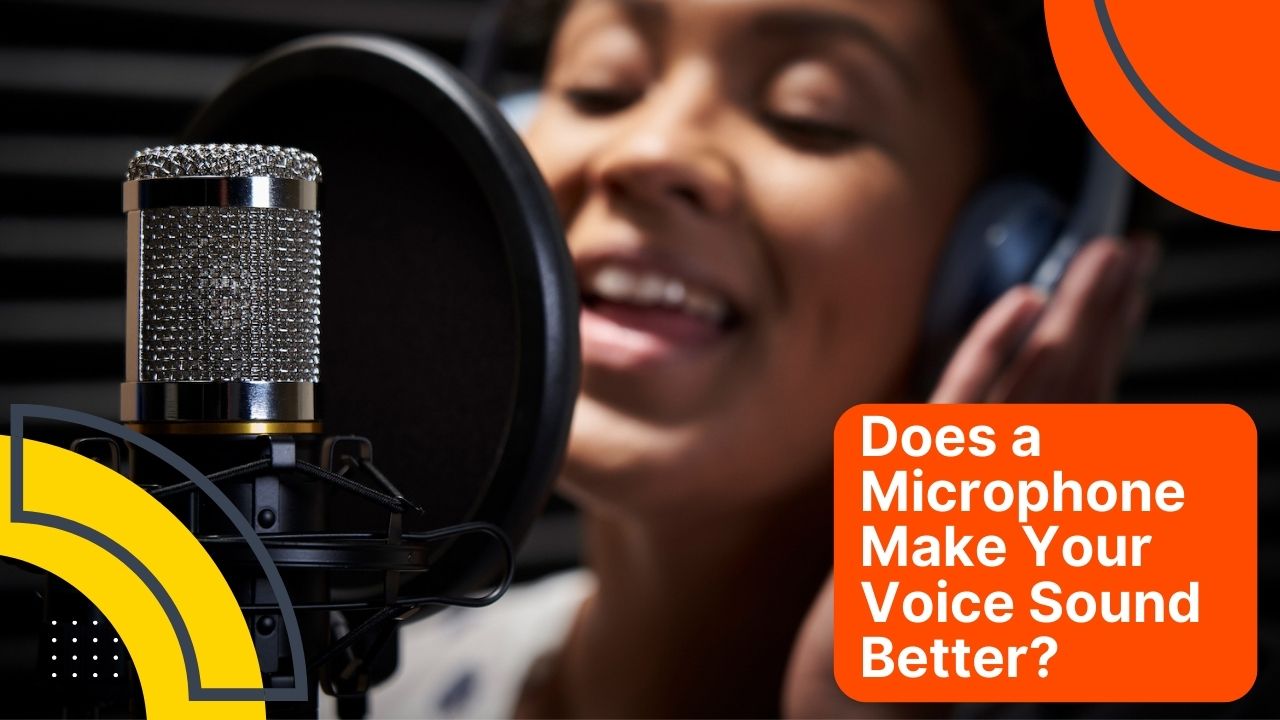It is common to have a hard time accepting how our voice sounds different in a recording from that in real life. Often we do not like the sound of our voice while others perceive it in a different light.
Does a Mic Make Your Voice Sound Better?
Using a microphone will alter the sound of your voice, just as using any audio equipment will do. The quality of some microphones varies from one to another, but all mics alter sound somehow.
You can improve the quality of your recorded voice by choosing the right microphone by enhancing certain aspects, such as the prominence of specific frequencies, tone, color, and overall clarity.
In the context of capturing voice on a microphone, the quality of the audio equipment is a crucial factor. There can be slight alterations in certain mics while others do not taint the original voice quality. So let us explore the reality of whether a mic can make our voice sound better.
Factors that affect voice captured on microphones
If you are a novice and have spoken on a mic for the first time, it is natural to feel that you sound strange. This, however, is not the test to assess if your mic is operating efficiently. Even the most expensive mics will slightly alter how your voice sounds. The main altering factors for a mic that you should take note of are:
- The polar pattern
Every mic has a polar pattern to capture sound and which is usually three-dimensional. The most popular polar patterns are omnidirectional, bidirectional, and cardioid. Omnidirectional mics are sensitive to sounds and voices from all directions and alter your voice by adding extra sounds. Bidirectional mics, on the other hand, have the utmost proximity effect. It captures changing proximities of your voice at different frequencies. Lastly, cardioid mics have their highest to lowest sensitivity from the front to the side to the back.
- Placement and proximity
The placement of a mic affects the sound capture to a great extent. While using a mic, you must pay attention to the volume of your voice, the off-axis coloration, and the proximity effect. The off-axis coloration simply is about moving away from a certain axis which causes difficulties for the mic to capture sound. You already have understood that the proximity effect is about how close a speaker should be to a mic.
- Frequency response
Did you know that a mic captures frequencies similar to human hearing? However, the corresponding frequency responses are either flat or colored. Flatter responses denote more accurate recordings. On the other side, colored responses denote sensitivity to certain frequencies over others leading to modifications in voice quality.
- Sensitivity

A microphone capsule reacts to sound waves. Based on such sensitivity or reactivity, there are three types of mics. They are namely- moving-coil dynamic mics, condenser mics, and ribbon dynamic mics. To help you choose the right kind, we suggest choosing the third kind as it captures and retains the authenticity of the human voice.
Why does the voice sound different on a mic?
Sound travels through different mediums of gases, liquids, and solids in different ways. How a mic picks up your voice when your voice reaches the mic differs from how it gets received by your ears.
This also explains why other people hear and perceive your voice differently than you. This confirms why there is an apparent difference between when you hear a natural voice and when you hear the same on a microphone.
How to choose your mic?

After hours of trying different mics, you may find the right pick for your voice. Assuming that it captures sound accurately, positioning the mic properly will help your voice sound better.
Remember to choose a mic that responds to flat frequency and has minute presence boosts. Also, the mic you choose must be as per the polar pattern and sensitivity that caters to your voice and the recording setup. Last but not least, cardioid mics are the best for recording purposes.
Conclusion
Therefore, we can conclude that no microphone can specifically enhance our voice quality. It is an array of factors that come into play while choosing the right mic for the right recording situation and voice quality. What is possible is that some mics can add other sound frequencies to your voice and alter the sound capture.
You should also be aware of how to make use of the mic to avoid muffled sounds or other interruptions in the capture or recordings. You must have technical knowledge about different mics to capture your voice as per the specific requirement with the right kind of mic.




